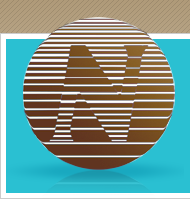Call for Papers
DIEGESIS 6.1
Date of publication: June 2017
Topic: “Narration and Knowledge”
Deadline for the submission of abstracts: March 31st, 2016
Deadline for the submission of articles: December 31st, 2016
About the TOPIC:
DIEGESIS 6.1 (2017) explores the nexus of narration and knowledge. Over the last few
years a lively discussion has revolved around the relationship between literature and
knowledge, focusing on literary representations of knowledge produced in the natural
sciences and other disciplines, on the narrativity of scientific discourse in the natural
and social sciences, and on the epistemological status specifically of literature itself.
Concurrently, narrative theory has emphasized the cognitive potential of storytelling
(e.g. as a means of representing events or of constructing personal identities). The
upcoming issue of DIEGESIS seeks to connect these various discussions and we
accordingly invite proposals addressing any of the following questions:
- Is narration a specific and irreducible epistemological discourse in its own right?
- Which forms and modes of knowledge can properly be regarded as narrative? Does narration generate theoretical rather than practical knowledge?
- Are there specific types of content that lend themselves more readily to narrative representations (such as representations of historical events or personal identities)?
- Can literary fiction produce knowledge at all, and if so, does literature generate a specific kind of knowledge or epistemological insight?
DIEGESIS Interdisziplinäres E-Journal für Erzählforschung
Interdisciplinary E-Journal for Narrative Research
https://www.diegesis.uni-wuppertal.de
Contributions to DIEGESIS 1/2017 should approach these questions, or related issues,
either from a theoretical and systematic angle, or by means of exemplifying case
studies.
We invite abstracts of approximately half a page (DIN-A4) by March 31st, 2016 at the
latest. Please send your abstract, along with a brief CV, to the editorial team of
DIEGESIS: diegesis@uni-wuppertal.de. The editorial team and the editors will decide
on the acceptability of proposals by April 30th, 2016. Contributions have to be submitted
by December 31st, 2016. The issue will be published in June 2017.
In addition, we always welcome REVIEWS of new works (i.e. works published in the
last three to four years) in the field of narratology; we specifically welcome cross-disci-
plinary contributions in addition to contributions from those working in the fields of
language and literature. Recommendations for reviews can be sent to the aforemen-
tioned e-mail address at any time; in your e-mail, you should name the book(s) you
would like to review and provide a brief overview of your academic career.
Furthermore, we would also like to invite suggestions for CONFERENCE REPORTS
on any events in the field of narrative research. If you want to send us proposals for
such reports please include brief information on the topic, venue, date, and organizers of
the event as well as a short outline of your academic career.
About DIEGESIS:
DIEGESIS is the first interdisciplinary journal dedicated to narrative research that pro-
vides free online access to full-text articles and reviews (www.diegesis.uni-
wuppertal.de). The high standard of work published in DIEGESIS is ensured by a
combination of competitive calls for papers and a peer review process.
DIEGESIS is published at the University of Wuppertal and in cooperation with the local
Centre of Narrative Research (CNR) (www.zef.uni-wuppertal.de) by Matei Chihaia
(Romance studies), Sandra Heinen (literature and media studies), Matías Martínez
(German studies), Michael Scheffel (general literary studies) and Roy Sommer (English
and American studies).

